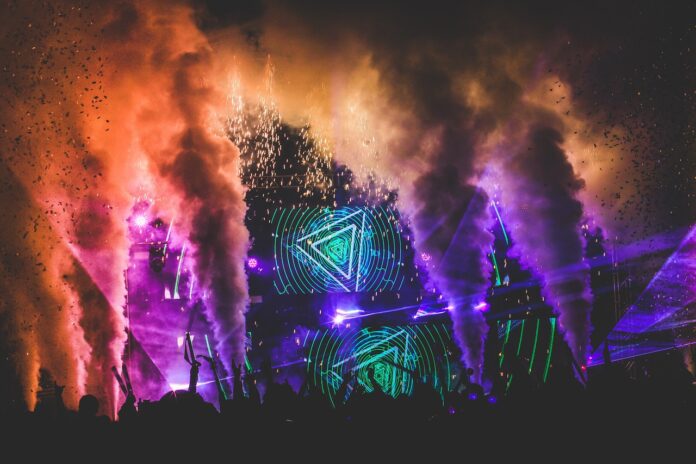
THE tragic events that unfolded from the recent Pinkfish Countdown 2024 concert, where four individuals lost their lives, have reignited debates about the intersection of music culture, drug use, and public safety.
As someone who’s spent years attending countless gigs, festivals, and concerts, it boils my blood to witness yet another stain on the live music scene.
While my heart beats for ear-crushing rock – preferring small gigs and intimate shows over opulent festivals – I’ve always tried not to sneer at other subcultures, even for something as unfathomable as electronic dance music (EDM). But let’s face it, when lives are cut short, it’s time to call out the crap for what it is.
The EDM community loves to shout about PLUR—Peace, Love, Unity, and Respect—but let’s not kid ourselves. To be clear, authorities have suspected drug abuse in this incident, and while this has yet to be confirmed by pathologists, the scene’s love affair with synthetic drugs like ecstasy is no secret.
Sure, some ardent followers may claim it’s all about enhancing connection and euphoria, but when pills are sold like candy at these events, you’re playing Russian roulette with people’s lives.
Of course, not everyone at EDM shows is a recreational drug user—those seeking clean, genuine fun far outnumber the few abusers—but the reality is, narcotics are deeply ingrained and even glorified in the culture. Unfortunately, that’s the reputation it carries.
The deaths from Pinkfish, like those at the Future Music Festival Asia in 2014, are grim reminders of this. They were needless and heartbreaking. Back then, it wasn’t even just about drugs, heatstroke also played a fatal role. But here’s the thing: dead is dead, and excuses don’t bring anyone back.
What also really grinds gears is the tendency for knee-jerk reactions from authorities. Slapping immediate bans on permits for similar events is a classic, textbook overreach.
It’s sloppy governance—punishing entire communities for the actions of a few bad actors. Blanket bans do nothing but breed resentment, and the real problems—like poor event management and drug abuse at such events and beyond—go unaddressed.
If deaths occur at massive motorcycle gatherings, like the three fatalities during the We Are RXZ Members 6.0 2024 programme in Terengganu last September, there’s no immediate shutdown or blanket ban?
If anything, this approach makes it harder for fans or event participants to trust the system. And let’s not forget the politicians and bureaucrats who will undoubtedly swoop in with moral grandstanding, as if they’ve suddenly become champions of public safety.
Even worse, blanket bans and denied event approvals will only push organisers to operate underground, increasing the risks and removing any chance of oversight or safety measures.
And don’t get me started on the armchair warriors on social media. It’s always the same drill: sanctimonious and holier-than-thou posts, finger-pointing, and even wilder speculation.
Spare us the moral high ground. Passing judgment on the dead or shaming the living doesn’t fix anything. It’s cruel, and frankly, it’s pathetic.
If you’re not contributing to solutions, maybe just sit this one out.
Here’s the deal: education, and getting anti-drug messages across effectively, is the way forward. Not the patronising “just say no” nonsense, but real, honest talk about narcotics and harm reduction. Things like on-site drug testing, hydration stations, and better crowd control can save lives.
And if individuals are already spending hundreds in entrance fees, access to drinkable water should be made free or affordable to concert-goers. This is essential and should be a right, not a privilege.
It’s not rocket science, but it does require people to stop pretending these issues don’t exist. And let’s build a culture of accountability, where looking out for each other is more than a hashtag.
Music is supposed to be our escape, our connection, our rebellion against the grind. It’s not supposed to end in tragic headlines and funerals. If we want to keep the spirit alive, we need to demand better from organisers, authorities, and ourselves. Let’s take care of our own, because if we don’t, who will? – January 4, 2025
A. Azim Idris is a News Editor at Scoop. In a past life, he wrote for music portals like NME Asia, Wknd Sessions, and TapauTV.



